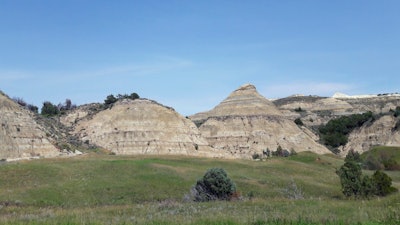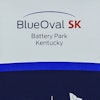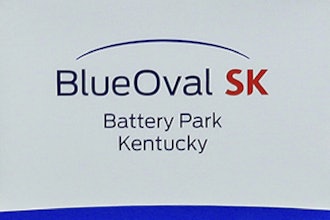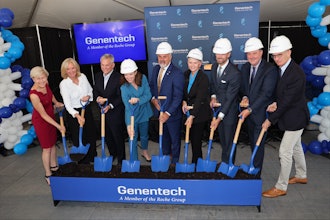
BISMARCK, N.D. (AP) — A North Dakota judge has finalized his recent conclusion that state regulators don't have a say in the site of an $800 million oil refinery being developed near Theodore Roosevelt National Park, potentially clearing a major roadblock for the project. An attorney for one of the environmental groups challenging the project says the judge's recommendation could set a bad precedent by effectively allowing developers to police themselves.
Administrative Law Judge Patrick Ward in a nonbinding recommendation last month said the Davis Refinery being developed by Meridian Energy Group won't have a large enough capacity to fall under the jurisdiction of the Public Service Commission.
The Environmental Law and Policy Center and Dakota Resource Council disputed that, noting that the project's permit from the Health Department allows construction of a facility big enough to warrant PSC review under state law.
Ward in a decision dated Wednesday said that doesn't matter. "The fact that the (Health Department) issued a permit for Meridian to build a refinery up to 55,000 (barrels per day) does not mean they need to construct one of that size," Ward said. "The proposed 49,500 bpd facility sworn to in the affidavit from the chief executive officer of Meridian is beneath PSC jurisdiction."
Under state law, oil refineries with a capacity of 50,000 or more barrels require a site permit, a process that involves public hearings and can take half a year or longer to complete. Meridian initially told the media, investors and government officials that the refinery would have a capacity of 55,000 barrels, but the company later lowered the figure to 49,500. It has denied trying to skirt state law.
The two environmental groups that filed a complaint with the PSC maintain the Health Department permit indicates the project might end up being larger than the company maintains. They want permission to obtain more information from Meridian so they can explore the veracity of the company's stated plans for a 49,500-barrel refinery.
Ward in his decision recommended that not be allowed, and he again urged the PSC to dismiss the groups' complaint. The commission could act as early as its next regular meeting, scheduled for Wednesday. During an informal discussion of the matter last month, one commissioner indicated she likely would vote to heed the judge's advice, while the other two PSC members held off on indicating their position.
Dakota Resource Council attorney JJ England said that if the PSC follows the recommendation, it "may have the effect of restricting the jurisdiction of executive agencies in North Dakota."
"The judge's recommendation all but asks the PSC to waive its power to review the safety and location of this major oil refinery so long as the company swears that it does not need a permit," he said Thursday in a statement to The Associated Press. "In other words, it allows companies to police themselves."
Meridian began site work this summer for the refinery 3 miles (5 kilometers) from the park. Opponents fear pollution will mar the park's scenery and erode the air quality at the state's top tourist attraction. Meridian disputes that, and supporters believe the plant will boost the area's economy.
The company hopes to begin operating the refinery in 2020, though the project faces a legal challenge of its state air quality permit. Meridian also still needs state water and wastewater permits, and it will need to prove once the refinery is built that it meets air quality standards.





















